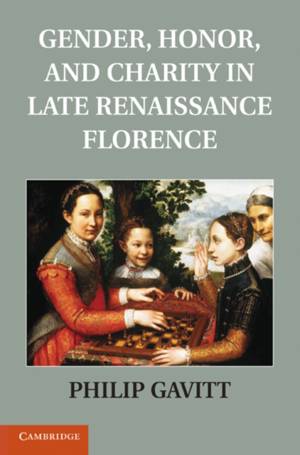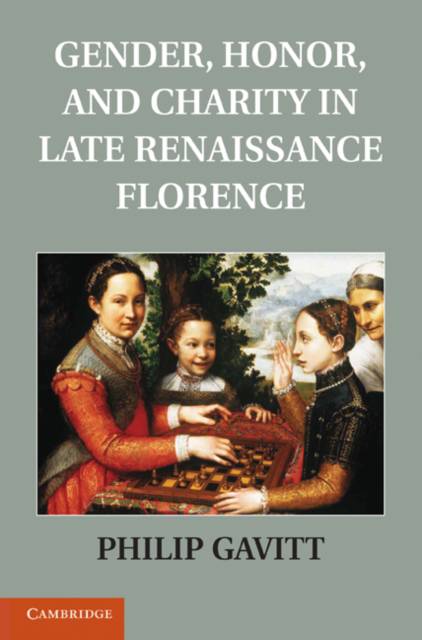
- Afhalen na 1 uur in een winkel met voorraad
- Gratis thuislevering in België vanaf € 30
- Ruim aanbod met 7 miljoen producten
- Afhalen na 1 uur in een winkel met voorraad
- Gratis thuislevering in België vanaf € 30
- Ruim aanbod met 7 miljoen producten
Zoeken
€ 100,95
+ 201 punten
Uitvoering
Omschrijving
This book examines the important social role of charitable institutions for women and children in late Renaissance Florence. Wars, social unrest, disease, and growing economic inequality on the Italian peninsula displaced hundreds of thousands of families during this period. In order to handle the social crises generated by war, competition for social position, and the abandonment of children, a series of private and public initiatives expanded existing charitable institutions and founded new ones. Philip Gavitt's research reveals the important role played by lineage ideology among Florence's elites in the use and manipulation of these charitable institutions in the often futile pursuit of economic and social stability. Considering families of all social levels, he argues that the pursuit of family wealth and prestige often worked at cross-purposes with the survival of the very families it was supposed to preserve.
Specificaties
Betrokkenen
- Auteur(s):
- Uitgeverij:
Inhoud
- Aantal bladzijden:
- 290
- Taal:
- Engels
Eigenschappen
- Productcode (EAN):
- 9781107002944
- Verschijningsdatum:
- 22/08/2011
- Uitvoering:
- Hardcover
- Formaat:
- Genaaid
- Afmetingen:
- 160 mm x 229 mm
- Gewicht:
- 521 g

Alleen bij Standaard Boekhandel
+ 201 punten op je klantenkaart van Standaard Boekhandel
Beoordelingen
We publiceren alleen reviews die voldoen aan de voorwaarden voor reviews. Bekijk onze voorwaarden voor reviews.











